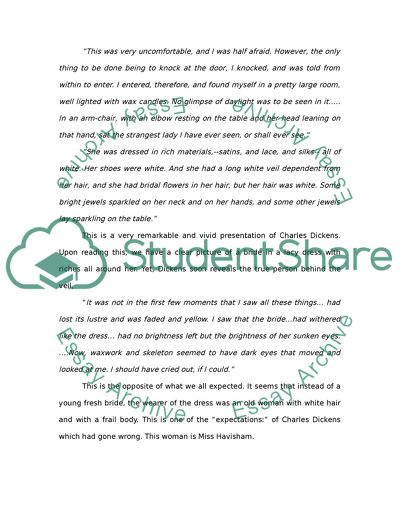An Analysis of Great Expectations Essay Example | Topics and Well Written Essays - 1000 words. https://studentshare.org/literature/1730943-textual-analysis-great-expectations
An Analysis of Great Expectations Essay Example | Topics and Well Written Essays - 1000 Words. https://studentshare.org/literature/1730943-textual-analysis-great-expectations.


